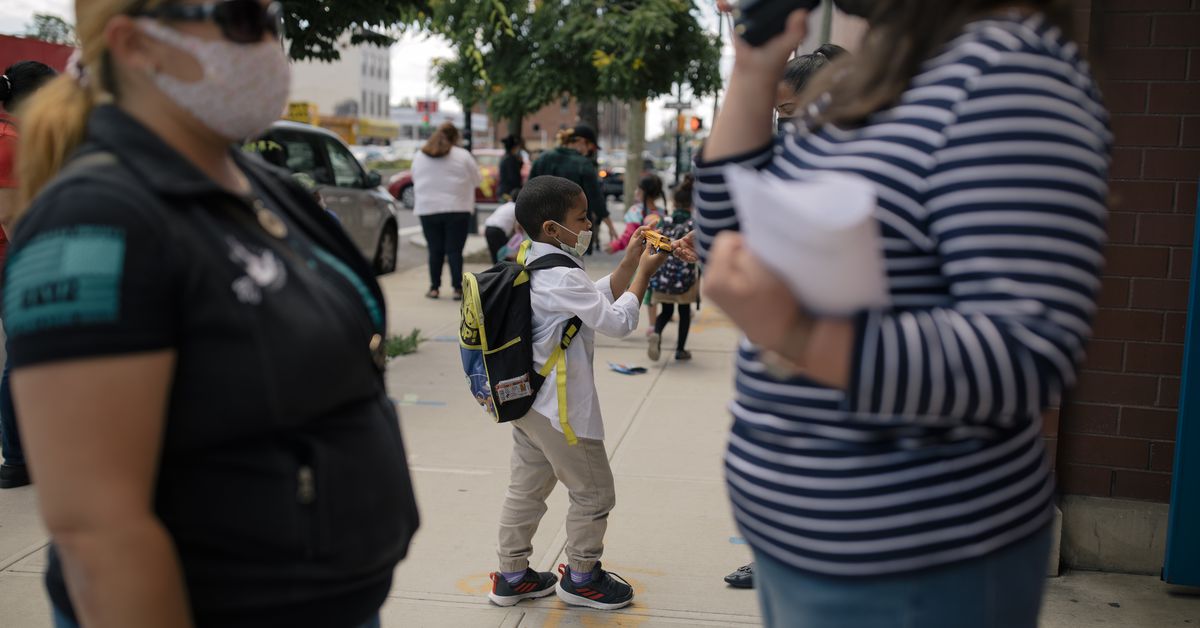MU students worry about safety, financial issues this fall | Higher Education
MU’s fall semester starts in two weeks, but some students still have concerns about reopening campus, including safety and financial issues.
MU spokesperson Liz McCune said university officials have heard from students and parents that they want to return to campus for in-person experiences, and freshman enrollment for this fall is up slightly from last fall.
“So, the university is moving forward with plans to offer an in-person experience with a number of safety protocols from creating safe distances to requiring face coverings in most situations on campus to developing quarantine and isolation plans in the event of positive cases,” McCune said.
Students and families have been given extensive information about the plans that were built by public health officials and medical experts, she said. The university will continue to review the Show Me Renewal Plan, which can be found on renewal.missouri.edu. It is a plan that outlines the challenges the university expects for the next semester and steps it is taking to address them.
In addition, public health officials will monitor the pandemic and direct contact tracing efforts, which the university is working to support, she said.
Health and safety issue
Although MU has lots of rules to respond to the pandemic, some students are still worried about health and safety.
“Despite the precautions that the university has in place for classes, you don’t know who you can trust to be around because you don’t know (if) people are going to party and whether they are irresponsible and selfish,” said Hope Davis, a sophomore journalism student.
Also, she said it is hard to believe that students are not required to report positive COVID-19 cases to the university.
This rule also makes Jessica Fitzgerald nervous. She is a sophomore majoring in journalism and political science.
“I don’t really want to be in class with someone who tested positive and none of us really know about it,” she said. “I’m assuming that if the majority of people who are going to be missing class, it’s going to be because they have symptoms, and they have COVID-19.”
Although students are not required to report positive cases to MU, their results and personal details will be reported by the lab to the health department as required by law, Lynelle Phillips, an assistant teaching professor at MU’s School of Health Professions, said in a commentary. Therefore, there is no need for MU students to report their own positive tests.
Meanwhile, “MU is in the process of hiring a team of case investigators and contact tracers to assist the health department,” she said. “Once a positive COVID-19 test is reported to the health department, the health department will coordinate with the MU Student Health Center to ascertain if the case is actually an MU student.”
MU is also working on mandating that students report to the university when they test positive for the virus, Scott Henderson, assistant director for medical services at MU Health Care, said during a virtual town hall.
Emma Bennett, a junior strategic communication and political science major, said she is worried because there will be a high volume of students in the journalism school.
“I have smaller classes, but they still have a considerable amount of people,” she said. “Also, the idea of how (schools’ plans) were saying you must wait before you enter your lecture hall until everyone has left kind of worries me because there is no time for letting virus droplets go away in the air.”
But McCune said students will find classes offered in various creative ways to avoid large classes and ensure safe spacing between students.
Some are also concerned with safety issues in the student apartments.
Davis is living in a student apartment through MU Residential Life with three other people. She said her roommates seem to be cool and trustworthy, but other people may have different situations.
If people have roommates who don’t abide by the rules, what they are advised to do is to stay away from their roommates, she said. But that is not realistic.
Bennett was worried about her own health affecting a roommate.
“I have one roommate who has lung issues, which makes me a little bit more nervous (if) I get sick or I am asymptomatic because I don’t want to get her sick,” she said.
KeShon Russell, a rising sophomore and also a residential assistant in North Hall, said he is worried because he is responsible for making sure people are following all the guidelines that will help keep people safe and making sure that they don’t increase the spread of the virus.
“As far as I know, there are a lot of (precautions),” he said. “All of the social areas are already predetermined for social distancing and making sure that people aren’t bringing guests from other MU halls or just outside campus. And hand sanitizing stations are around the halls.”
Fitzgerald is going to live in a sorority house in the fall semester.
“We are taking extreme precautions,” she said. “Girls are going to be wearing masks in the house except for in their rooms. No one else is allowed in except for people who live in a house.”
She said she still worries about the safety issues.
“Cases are going to rise extremely when we all come back together in August because we are all coming from different places,” she said. “So I just hope that everyone wears their masks and keeps social distancing.”
Online course costs
Darcy Becker, an incoming senior studying statistics, said as cases rise, “I think being online would be a better choice than risking having everybody come back to the campus.”
Some students hope MU cuts the tuition fee for online courses, including those with financial problems caused by the pandemic.
Madalynn Owens, a rising junior strategic communication major, is a recipient of the award. She said the cut affects her financially, so she hoped MU would decrease the tuition fee for online classes.
“I understand that if it has to be online, but it is ridiculous to pay the same amount of money for an online course,” she said. “It is obvious that it is not going to be at the same level as it would be in person.”
In May, a class-action lawsuit was filed against the UM System claiming that MU students “did not receive the in-person educational experience that they paid for during part of the 2020 spring semesters” because MU shifted to online classes, according to previous Missourian reporting.
As for tuition, in a virtual town hall, UM System President and MU Chancellor Mun Choi said MU will not reduce charges for online courses this semester because MU offers “individualized courses with high-quality faculty teaching them,” according to previous Missourian reporting.
McCune said students won’t be charged additional online service administrative fees on online courses that shift from in-person classes due to the pandemic.
Another recipient, Noah Wright, is a sophomore with a constitutional democracy major. They cannot afford their rent this year because of the cut on the scholarship.
They said as cases increase quickly, they think it is extremely likely that classes will be online in the near future.
“(If everything goes online), there are so many other expenses that you could cut money from, like sports, endowments or other things,” they said. “There are just so many things that Mizzou could cut to help supplement students like me who lost their scholarship.”
‘Side effect’ of online courses
Sophomore journalism student Davis said she is worried that moving to more online classes is going to affect students who need accommodations.
“I have ADHD,” she said. “My ADHD made going remote difficult because people with ADHD benefit from structure and routine to focus.”
“But I managed to get through it and I was lucky to have teachers that would be very lenient and work with me,” she said.
But not all students were lucky like Davis.
“Staying online is going to disadvantage students who need academic accommodations,” Davis said. “So the university is kind of going to have to do more to ensure that students’ accommodations that they need in this sort of new setting get met.”
Becker is another student who has certain illnesses, especially ADHD.
“I am worried about if when we go online, I cannot handle online classes well — let alone having two already and then became five,” she said.
MU response: Education and disciplinary action
McCune said MU has implemented lots of rules on campus in order to support students.
To ensure students comply with the rules, the university will launch a comprehensive education effort to encourage the university community to modify behavior, she said. In addition, there will be required training for the entire MU community.
Students who want to register for the Spring 2021 semester or get a transcript after the end of Fall 2020 must complete a Student Training Course on COVID-19 safety by Aug. 24.
“Those who do not follow our policies and protocols are subject to disciplinary action through the office of the Dean of Students,” McCune said.
McCune outlined this approach: When students come to class without face coverings, at first they will be offered one. But if they don’t comply with these rules after being reminded of university policies, they will be asked to leave the class. If they don’t want to leave the class, they will be informed of consequences for failure to comply, which includes suspension or expulsion.
If the above steps don’t work, the class for that day will be canceled and students will be reported to the Office for Student Accountability. Sanctions could include suspension or expulsion from the university.
McCune said students should abide by the rules because “a successful fall only works if we work together to mitigate the risk of transmission.”







